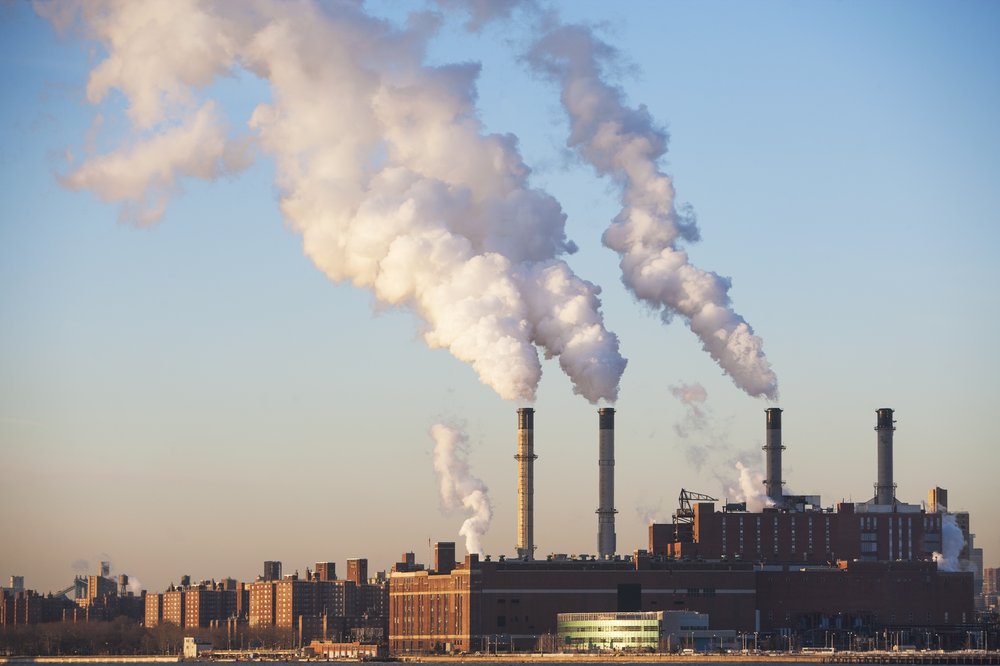New York to apply tougher energy efficiency standards with new climate laws
July 5, 2022, 3:58 p.m.
Gov. Kathy Hochul signed three climate-focused bills into law in Brooklyn on Tuesday.

New York Gov. Kathy Hochul signed a bill into law Tuesday that will bolster the state’s building code when it comes to greenhouse-gas emissions and place tighter energy efficiency standards on new household appliances.
The Advanced Building Codes, Appliances and Equipment Efficiency Standards Act was one of three climate-related measures approved by the governor, along with bills paving the way for utility companies to expand thermal energy and making more renewable energy construction projects subject to the prevailing wage.
Hochul, a Democrat, signed the bills into law in the wake of a U.S. Supreme Court decision last week curtailing the U.S. Environmental Protection Agency’s ability to regulate carbon emissions from power plants. She said the new laws are a signal New York remains committed to its own climate goals, which call for reducing the state’s greenhouse gas emissions 85% from 1990 levels by 2050.
"We are the first generation to really feel the effects of climate change,” Hochul said before signing the bills. “We're also the last that can really do anything about it. That's the weight that's on our shoulders."
The new building codes and appliances law is meant to cut down on energy use, both as a way to reduce emissions and cut down on energy costs for consumers.
Among other things, the law requires the state Energy Research and Development Authority (NYSERDA) to come up with tougher water and energy efficiency standards for standard appliances – including everything from refrigerators to ice machines to clothes dryers to commercial fryers. Anything that doesn’t meet the new standards won’t be permitted to be sold, leased or installed in New York, according to the law.
The law will further require the state’s new building code to take the state’s climate goals into account “to the fullest extent possible” as they’re developed.
Hochul also signed the Utility Thermal Energy Network and Jobs Act into law, as well as a third measure requiring prevailing wage for any renewable energy project one megawatt or larger – down from the current five megawatts.
The thermal energy bill will open the door to allowing utilities to build and own networks that distribute thermal energy, under the watch of the state Public Service Commission. It would also require the state’s seven largest utilities to pilot at least one and as many as five thermal energy networks as a test in the short term.
State Sen. Kevin Parker, a Brooklyn Democrat who chairs the Senate Energy Committee, sponsored the bill. He said it’s one of many steps needed to continue the transition to a “clean energy economy.”
“We have to get to a clean energy economy in terms of generation in the ground,” he said. “We have to work with the utilities to have good interconnections and make that process smoother. We are going to need to make sure our transmission system is better.”
The state Legislature approved the bills during their annual session at the Capitol, which wrapped up last month.
But lawmakers were unable to reach a final agreement on other climate-related measures that would have gone further, including a bill that would have banned fossil fuel hookups in new construction as soon as the end of 2023.
Another measure would have given the New York Power Authority the green light to build and operate new, large-scale renewable energy projects, but the Assembly declined to pass it before ending its session.
State lawmakers did approve another measure favored by environmentalists: A two-year moratorium on so-called “proof-of-work” cryptocurrency mining that relies on power from fossil-fuel plants.
Hochul is facing pressure from environmental organizations to sign the bill, while cryptocurrency giants are pushing for a veto.
“It’s very much under review,” Hochul said of the bill.